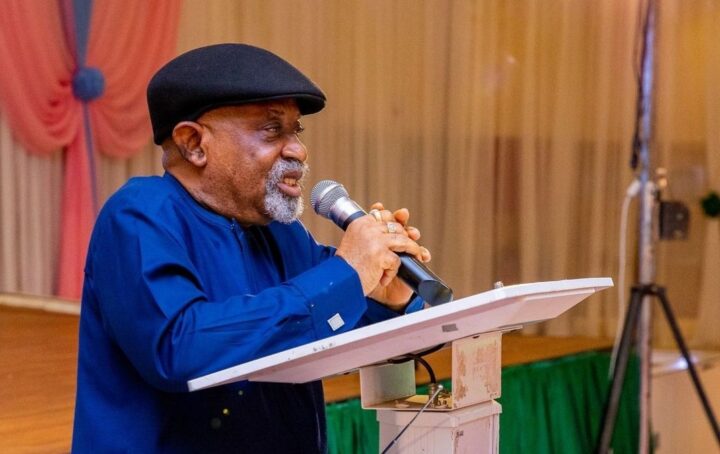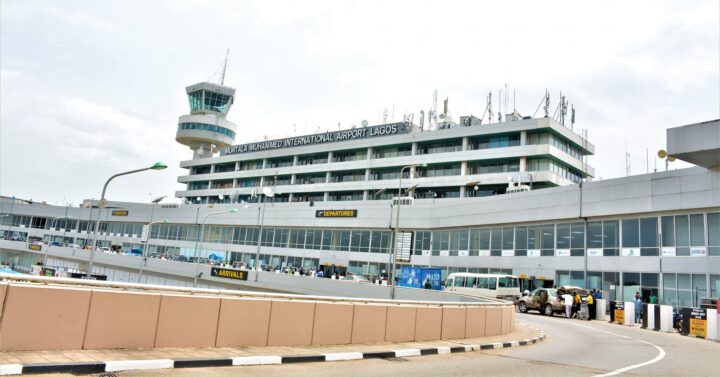Patience Oniha, director general of the debt management office (DMO), says the problem of high-interest rates and inflation has made the international capital market inaccessible for Nigeria to borrow money.
Oniha said this on Monday when she appeared before the house of representatives committee on aid loans and debt management to defend the agency’s 2023 budget proposals.
According to Oniha, the Nigerian government has spent about N1.2 trillion not budgeted on interest on loans taken from the Central Bank of Nigeria (CBN).
The DMO DG further said the international capital market had closed its doors to Nigeria, making it impossible for the country to borrow money from the eurobond market to fund government projects.
Advertisement
She added that the government could have raised money for the budget if their challenge did not exist.
“The reality is that if it was before, by now, we would have issued eurobonds to raise the money,” she said.
“But from the fourth quarter of last year, the international capital market has not been opened to countries like Nigeria.
Advertisement
“In 2021, there was N6 billion to be raised but we raised N4 billion out of that. This year, we raised N1.25 billion. That was the only day the International capital market was opened.
“Since January this year, countries with our rating, the international market are not looking for us because the invasion of Ukraine by Russia turned things around the world significantly.
“So, inflation rates are high, interest rates are high and investors are saying there is a lot of uncertainty, there is threat of recession. So, what they have decided to do is to put their money in the G7 nations.
“Interest rates there have gone up significantly and monetary policy has raised interest rates across rates world and foreign investors are happy to invest in those nations. Right now, they don’t know what will happen with us, and we have not issued any eurobond this year because the market has not opened”.
Advertisement
Oniha also said the international capital market is not close to Nigeria alone.
“Foreign investors are huge, but they have a limit to the amount of risk they can take. You have Fitch and others rating countries,” she explained.
“The very strong countries are the ones that in Triple A and USA used to be part of triple A, and I think they have been brought down to double. It is not only Nigeria but the whole of Africa. For this year, it is only Nigeria and Egypt that issued Eurobond. It is the same with some of the South American countries because we have the same rating.
“The ratings give the investors the perception of how risky you are. Investors are now putting their money in securities issued by the US government, Japan, France and others because they know that those countries will pay. We were even lucky to raise money in March.”
Advertisement
FG SPENT N1.2TRN ON INTEREST RATE
Oniha further said the country spent N1.2 trillion on interest rates.
Advertisement
“There is a new line called Ways and means advances. This is a process where the federal government borrow from the Central Bank directly. This has been in the media a lot,” she said.
“It is when the government runs an overdraft with the Central Bank.
Advertisement
It is not free, you pay interest on it. For clarity, the ways and means advances are under the management of the office of the accountant general, but supervised by the minister of finance. In 2022, no provision was made for payment of interest on ways and means.
“But if you look at the actual, you will discover that some amount has been incurred on ways and means advances. It is not free. So, we pay interest.
Advertisement
“One thing to add is that interest rates are going up in the domestic market and even internationally, but we have provided for it in the 2023 projections, including interest of N1.2 trillion on ways and means advances. it was not featured before, but we felt it is the right thing to do since it is a loan which you are paying separately”.
DEBT SERVICING
Speaking on domestic debt, the DMO DG said the country has exceeded its revenue by 100 percent.
“The budget was N2.5 trillion, but we have spent N1.86. External debt is N866 billion compared to N1.123 trillion. These figures are for three quarters,” she added.
“On the Sinking Fund, we have N286 billion, while ways and means advances which were not provided for in the budget, the Central Bank has charged over a trillion naira as interest.
“That is why in the MTEF/FSP, you discover that revenue to debt service was very high. For January to April, we actually exceed 100 percent of revenue. So, Apart from revenue being very low, there is this issue of ways and means advances.
“So, by the end of December, debt services will be higher than what was budgeted, largely because of ways and means advances.
“That is what has helped in breaching the revenue gap which underperformed significantly between January and August. On the outstanding ones, we are working on the Sukuk and the offer will open in the next two weeks, and we will issue FGN bonds as well.
“We are hoping to raise the balance before the end of the year. Where there is an issue is the new external borrowing. What was provided for in the 2022 budget is N2.57 trillion.”






